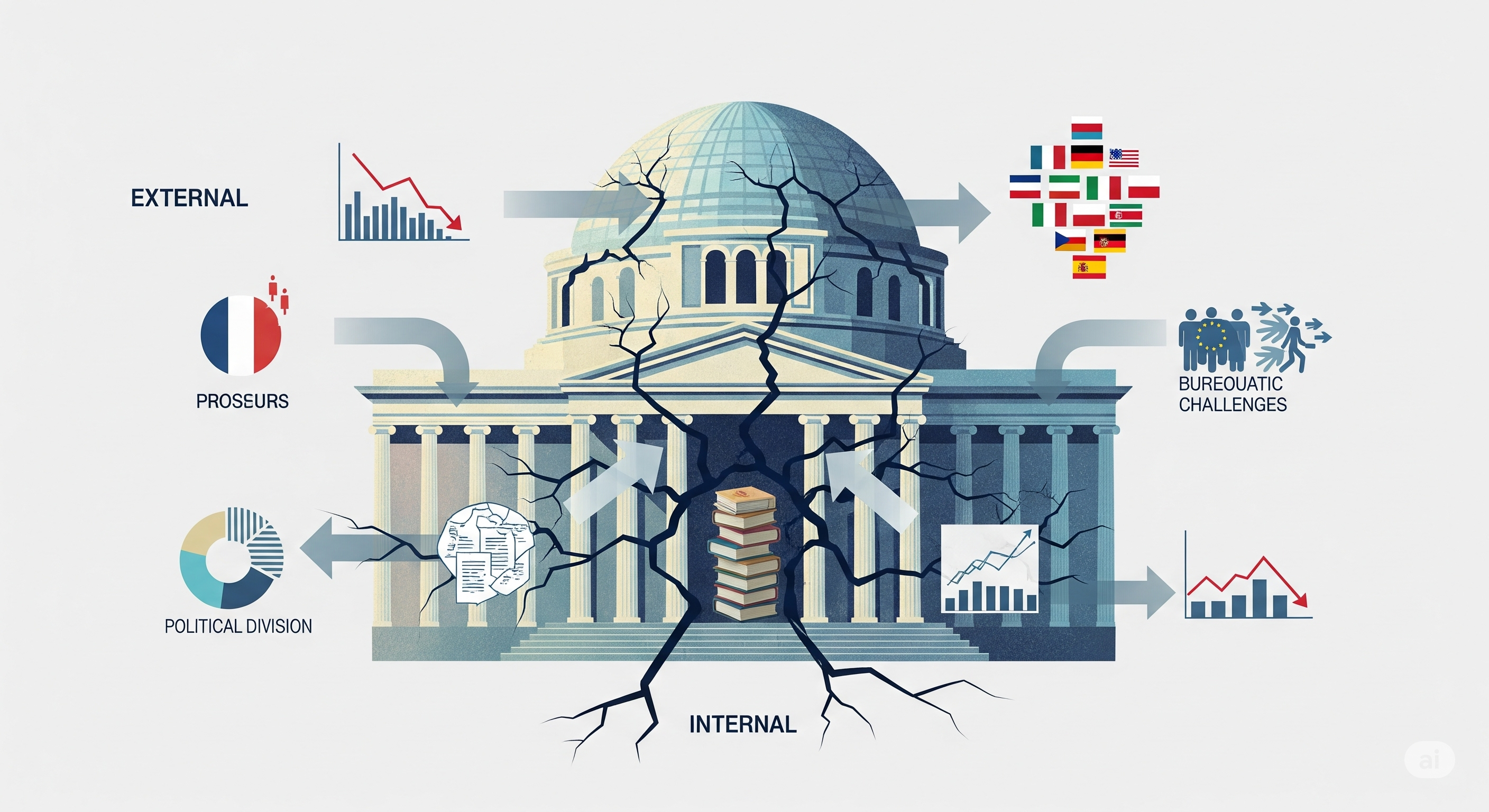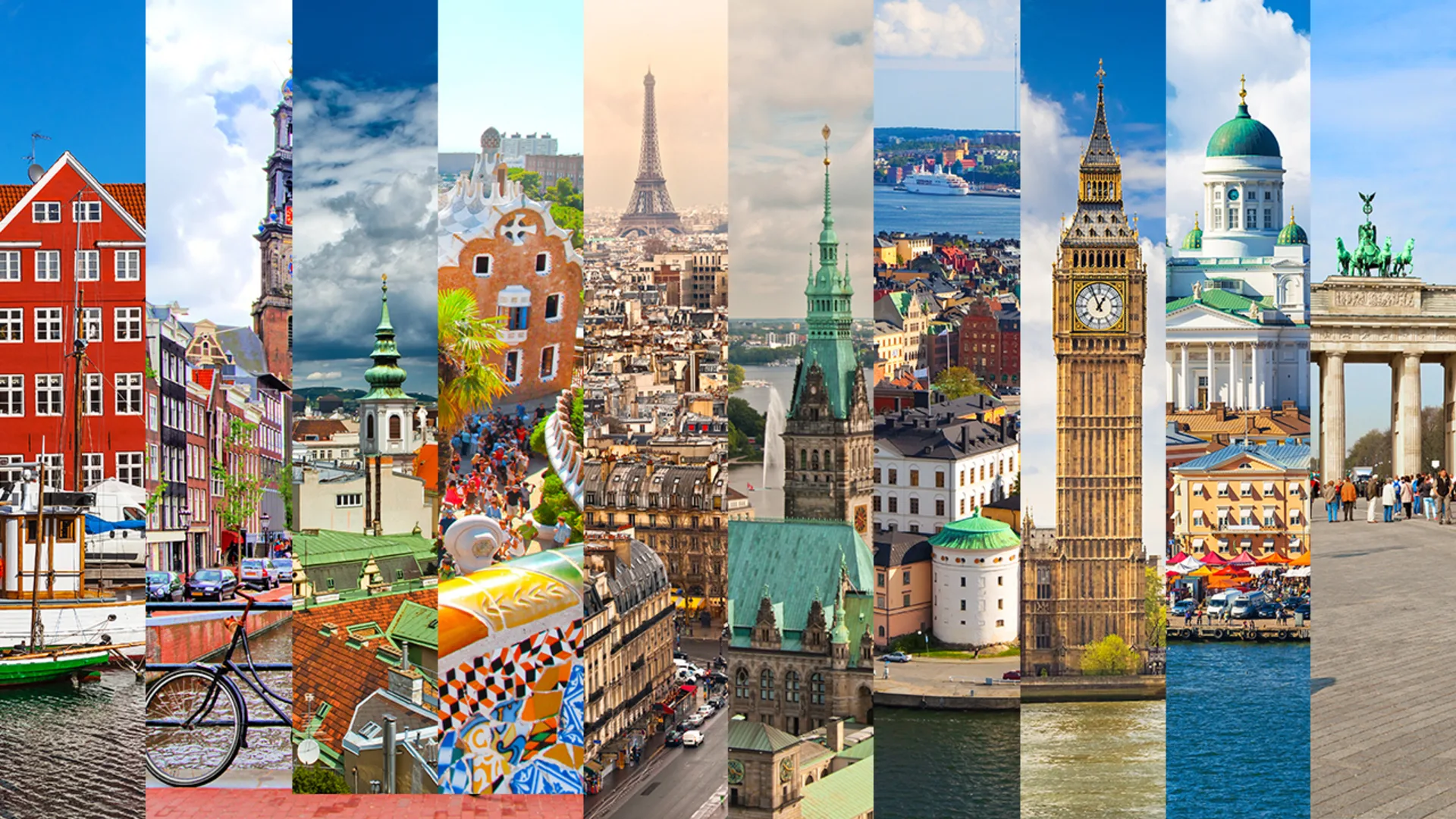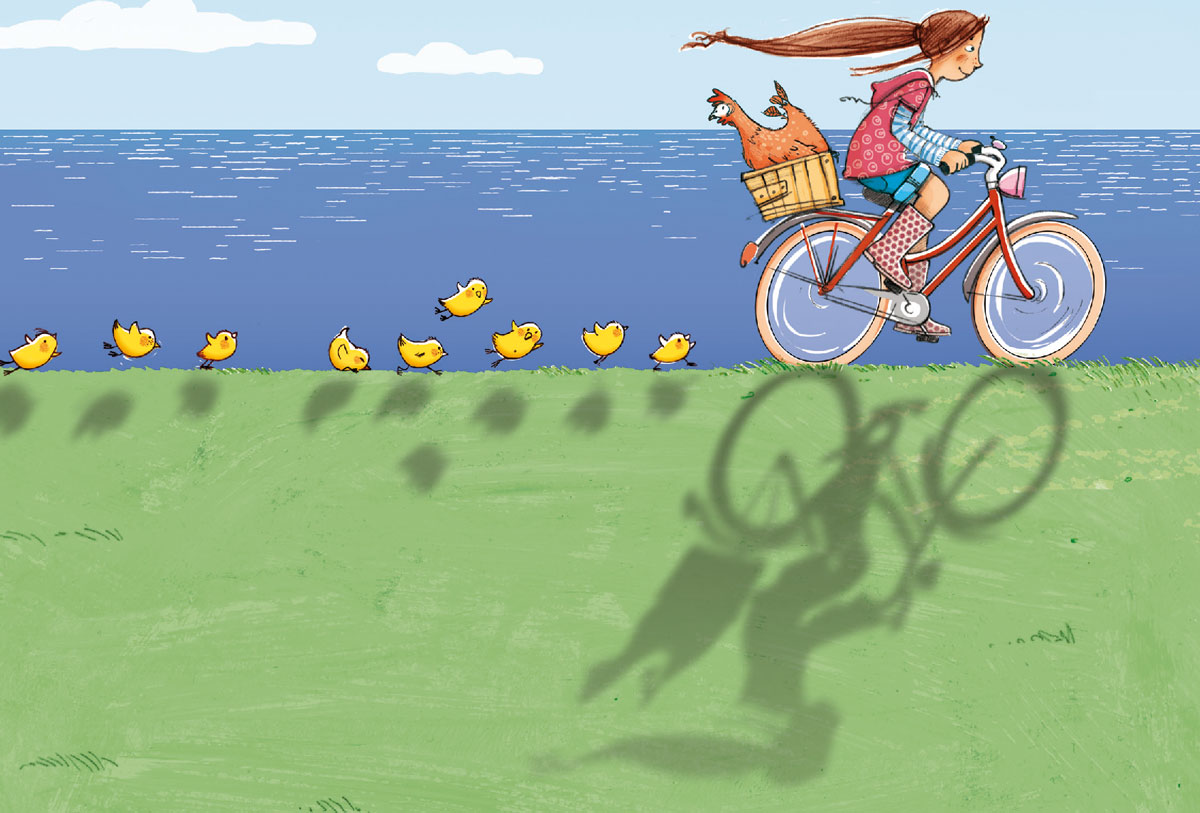For decades, the EU has been considered the most ambitious political and economic project of modern times. But beneath the blue flag with golden stars, cracks are slowly spreading. Without loud headlines, without official dissolution — just a gradual weakening of ties that once seemed unbreakable.
The European Union… To some, it appears as a reliable beacon in a turbulent world, a guarantor of peace and stability. To others — an arrogant bureaucratic monster that interferes in countries’ affairs, taking away their right to decide for themselves.
But what if everything is much more complex? What if the EU’s dissolution is already underway, but so quietly that we hardly notice it? I’ve been studying this question for months: analyzing economics, speaking with political scientists, diplomats, historians. And believe me, the conclusion turned out to be more alarming than expected.
Why the EU Might Collapse from Within
The EU was born not from trade, but from values — dignity, freedom, democracy, equality, human rights. But what if this value foundation is cracking?
Economic stratification. On paper — integration proceeds, countries converge. In reality — growing inequality within the states themselves. The middle class is shrinking, poverty is rising. After the 2008 crisis, Southern Europe plunged into harsh austerity, incomes fell, trust evaporated. The search for culprits often leads to Brussels — and therein lies the seed of the EU’s future crisis.
Silent Cracks
Growing inequality within countries. The gap between rich and poor EU members is narrowing, but within countries it’s growing. The middle class is shrinking.
Democratic alienation: Decisions in Brussels are made by officials not elected by the people. People trust their country more than the Union.
Rule of law problems: In Poland and Hungary, judicial independence is weakening, and the EU responds sluggishly.
Revival of nationalism: 90% of Europeans identify more strongly with their country than with the EU.
Migration stress test: Record migration undermines solidarity between members.
Democratic deficit. The European Parliament is elected but cannot independently propose laws. Key decisions are often made by structures that no citizen chose. Hence the feeling that the game goes on without us, and slogans like “Take back control!” fall on fertile ground. Brexit is the loudest example!
Ideological split. Poland and Hungary no longer just argue with Brussels — they’re changing the rules: courts lose independence, media lose freedom. The EU threatens sanctions, but they’re easily blocked. If common values become mere formality, the glue holding EU integration together disappears.
Nationalism in Europe. Yes, 71% of citizens feel connected to the Union. But 90% — primarily — to their country. And this loyalty becomes a convenient springboard for Eurosceptics, who increasingly speak of limiting Brussels’ powers.
EU migration crisis. 2022–2023 showed record refugee flows. Instead of a unified solution — chaos, closed borders, irritation among those on the front lines. If they start restoring border controls in Schengen, one of the most tangible symbols of the European Union’s future will disappear.
How Global Changes Pressure Europe
Global pressure. From trade wars to geopolitical fragmentation — Europe is forced to rethink its strategy. Without unified foreign and defense policy, the EU risks becoming a loose union.
The EU is accustomed to living in a world of open trade, diplomacy, and global cooperation. But now we observe rising protectionism, new conflicts, a race for resources.
If countries don’t learn to speak with one voice in international politics, each will begin acting alone. And then the very meaning of integration and sovereignty within the Union will be reconsidered.
What History Tells Us
USSR, Yugoslavia, Czechoslovakia — different contexts, but similar lessons:
- weak center + strong regions = risk of collapse
- national identity easily becomes a political weapon
- economic crisis and inequality destroy even strong unions
- compromise can save, rigidity and ambitions — accelerate the end
Forecast: Silent Erosion by 2035

Forecast until 2035. Complete collapse? Unlikely. But a weakened and less integrated Union — more than possible. The shell will remain, but the core may empty out.
A formal collapse of the EU in the next 10–20 years shouldn’t be expected. It’s too economically and institutionally intertwined.
But by 2035, another scenario is likely: the EU’s future is a union with less integration, greater country autonomy, and more blurred common goals. The shell will remain, but the content will change.
The reasons are already visible:
- fatigue from integration
- rising nationalism in Europe
- social inequality
- inability to develop common solutions on migration and security
A sharp collapse is only possible with a triple blow: economic crisis, mass protests, and complete institutional paralysis.
The question is not whether the EU will disappear, but what it will become. And the answer to this question depends not only on politicians, but on millions of Europeans ready to defend the values for which this union was created.





















Comments